Tour de Suisse 2018: The Route
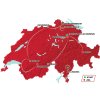 The 2018 edition of the Tour de Suisse started on the 9th of June with a team time trial in Frauenfeld, while the nine-day stage-race is set to finish with an individual time trial in Bellinzona. The Queen Stage takes in both the Furka Pass and Klausen Pass, while the Arosa-stage on the seventh day of action is supposedly the hardest course.
The 2018 edition of the Tour de Suisse started on the 9th of June with a team time trial in Frauenfeld, while the nine-day stage-race is set to finish with an individual time trial in Bellinzona. The Queen Stage takes in both the Furka Pass and Klausen Pass, while the Arosa-stage on the seventh day of action is supposedly the hardest course.
The first two days of action are in the Frauenfeld hub. The Tour de Suisse sets off with an 18 kilometres team time trial on an undulating route. The 2nd stage is a hilly circuit race in the capital of the canton of Thurgau, which lies close to the German border in the north of the country.
The 3rd stage is yet another hilly race with its last climb 5.5 kilometres before the line. Stage 4 is not flat either. Following a contest with 2,180 vertical metres the finale is a 10 kilometres drop down the Saanenmöser Pass.
Mountain goats are about to be fed now, as the route of stage 5 takes in the intermediate climbs up Col du Pillon and to ski resort (Crans)-Montana before a final haul up to the line in Leukerbad. The 6th stage is another chance for climbers as it features the most vertical metres in this year’s Tour de Suisse – namely 3,328. The route climbs the Furka Pass and Klausen Pass to finish with punchy finale in Gommiswald.
Climbers who are eyeing up the GC should be wide awake in stage 7 as this is the last mountain stage. Following a rolling start through green hills the route grows more mountainous along the way to finish with a 29 kilometres climb to Arosa. Just before the top the slope is averaging 10% for 3 kilometres.
After the starting hub in Frauenfeld the finishing hub is in Bellinzona. The beautiful town is surrounded by Alps, yet the 8th stage’s circuit race contains six laps on a largely flat route before the Tour de Suisse ends with an individual time trial of 34 kilometres. Once again, not mountainous at all – the last stage takes in merely 279 vertical metres.
Tour de Suisse 2018: Route maps, height profiles, and more
Click on the images to zoom
Tour de Suisse Riders
Tour de Suisse Favourites
Watch the highlights of recent races here:
Related articles Stage 9: Stefan Küng powers to ITT victory, while Richie Porte wins the GC - Tour de Suisse 20 Stage 8: Démare sprints to victory, Porte still leader - Tour de Suisse 20 Stage 7: Nairo Quintana climbs to victory, Richie Porte retains leader - Tour de Suisse 20 Stage 6: Kragh Andersen solos to victory, Porte cements lead - Tour de Suisse 20 Stage 5: Ulissi wins uphill sprint, Porte new leader - Tour de Suisse 20 Stage 4: Juul-Jensen solos to victory, Küng still in yellow - Tour de Suisse 20 Stage 3: Colbrelli bests Gaviria and Sagan, Küng still leader - Tour de Suisse 20 Stage 2: Sprint victory Peter Sagan, Stefan Küng still leader - Tour de Suisse 20 Stage 1: BMC wins team time trial, Küng first leader - Tour de Suisse 20 Route stage 1: TTT Frauenfeld - Tour de Suisse 20 Route stage 2: Frauenfeld - Frauenfeld - Tour de Suisse 20 Route stage 3: Oberstammheim – Gansingen - Tour de Suisse 20 Route stage 4: Gansingen – Gstaad - Tour de Suisse 20 Route stage 5: Gstaad – Leukerbad - Tour de Suisse 20 Route stage 6: Fiesch – Gommiswald - Tour de Suisse 20 Route stage 7: Eschenbach – Arosa - Tour de Suisse 20 Route stage 8: Circuit Bellinzona - Tour de Suisse 20 More articles Giro 2024: Thomas wins from the breakaway, Pogacar still leader
Giro 2024 Route stage 5: Genoa - Lucca
Giro 2024 Route stage 6: Viareggio - Rapolano Terme
Giro 2024 Favourites stage 6: Mini Strade Bianche
Giro 2024: Withdrawals
Giro 2024: The Route
Giro 2024: Riders
Giro 2024: GC Favourites
Giro 2024 Route stage 7: Foligno - Perugia
Giro 2024 Favourites stage 7: For punchy ITT specialists
Giro 2024 Route stage 8: Spoleto - Prati di Tivo
Giro 2024 Favourites stage 8: Mountain race for attackers
Giro 2024 Route stage 9: Naples - Naples
Giro 2024 Favourites stage 9: For fast finishers #3
Giro 2024 Route stage 10: Pompei - Bocca della Selva
Giro 2024 Favourites stage 10: Attackers in the high mountains
Giro 2024 Route stage 11: Foiano di Val Fortore - Francavilla al Mare
Giro 2024 Favourites stage 11: For fast finishers #4
Giro 2024 Route stage 12: Martinsicuro - Fano
Cycling Calendar 2024
Liège–Bastogne–Liège Femmes 2024: Brown wins six-up sprint
Tour de France 2024: The Route
Tour de France 2024: Riders
Tour de France 2024 Route stage 1: Florence - Rimini
Vuelta 2024: The Route
Like our Facebook page and stay on top of all pro-race information!
 All stages
All stages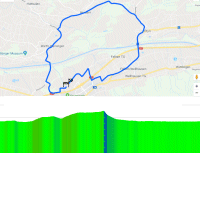 Route and profile 1st stage
Route and profile 1st stage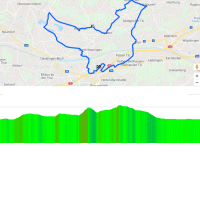 Route and profile circuit 2nd stage
Route and profile circuit 2nd stage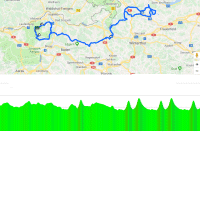 Route and profile 3rd stage
Route and profile 3rd stage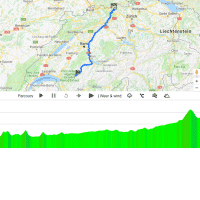 Route en profile 4th stage
Route en profile 4th stage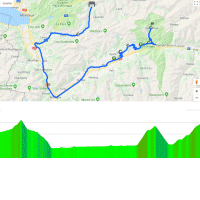 Route and profile 5th stage
Route and profile 5th stage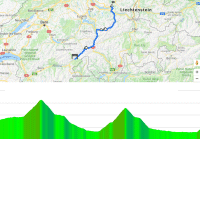 Route en profile 6th stage
Route en profile 6th stage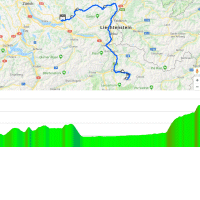 Route and profile 7th stage
Route and profile 7th stage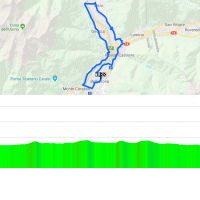 Route and profile circuit 8th stage
Route and profile circuit 8th stage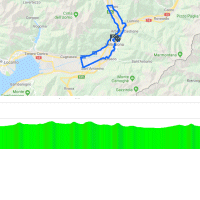 Route and profile 9th stage
Route and profile 9th stage Frauenfeld and Bellinzona at Google Maps
Frauenfeld and Bellinzona at Google Maps Instagram #tourdesuisse
Instagram #tourdesuisse
 Tour de Suisse Tweets
Tour de Suisse Tweets